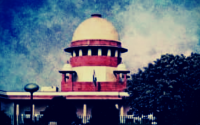Bar Buzz: Supreme Court issues 2 new rules
Source:-https://minnlawyer.com
The state Supreme Court on Wednesday publicly posted two new administrative orders — one dealing with court rules of public information access, the other affecting pro hac vice-counsel admissions for out-of-state attorneys.
We’ll describe the latter first, because it’s simpler.
That order changes Rule 5 of the General Rules of Practice by charging a $450 fee to out-of-state lawyers seeking pro hac vice-counsel admission to a Minnesota case.
The new rule, filed on Nov. 24, allows the court to permit the non-admitted lawyer to argue or submit an urgent matter, as long as the attorney represents that he or she qualifies for admission under the rule and pledges to promptly file an application for pro hac vice admission.
The second order, signed on Nov. 20, is a bit more complex. But happily, Justice Paul Thissen on Wednesday tweeted out a thread helping to explain the changes. Essentially, they exempt some submissions from administrative filing requirements and clarify how the Rules of Public Access will be applied after Jan. 1.
Because of concerns over access to the courts, Thissen explained, the new order exempts petitions for harassment restraining orders, protection orders and in forma pauperis applications from some previous requirements.
Specifically, those changes mean that District Court administrators won’t be permitted to reject, require cover sheets or non-public document filing codes, or administratively strike any of those three forms of petitions.
Additionally, beginning Jan. 1, court administrators can’t — in criminal or juvenile delinquency cases — require cover sheets or non-public document filing codes on applications for public defenders, on requests for restitution and victim impact statements filed by victims, or on proofs of insurance filed in response to no-insurance or no-proof-of-insurance charges.
Finally, Thissen tells us, police or law enforcement reports will no longer be considered court service records under Rule 4 of the Rules of Public Access to Records of the Judicial Branch.
What that effectively means, he tweeted, is that police reports will now be presumptively considered public whenever they get filed in public cases.
Both orders were signed by Supreme Court Chief Justice Lorie Gildea.
Related Posts

Next stop for life, the Supreme Court

Islamabad High Court to take up Indian spy Jadhav case today

